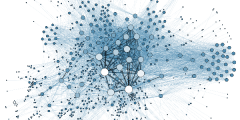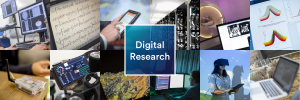How prototyping helps us move ideas off the drawing-board
August 4, 2020
This post describes how Digital Research uses Microsoft 365 tools like Power Automate to prototype future services, in collaboration with researchers. The Digital Research Specialists are often relied upon to bring researchers into the process of developing new digital services. Sometimes – when a service doesn’t exist yet – we also build our own “rapid …
Supporting the PGR community in working remotely
July 30, 2020
Following a recent town hall meeting for PGRs, there was clear feedback from the community around difficulties in accessing software and data remotely. Working with a number of postgraduate researchers, our Digital Research Specialists have helped explore a variety of technical options and found solutions that are available to the entire community. Depending on the …
A call for new Digital Initiatives
July 15, 2020
This post introduces our Digital Initiatives from 2019-20 and invites you to apply to work with us on Digital Initiatives in the coming year. “Digital Initiatives” have been part of the way Digital Research engages with the research community for the last four years. Since the start of 2016, Digital Research has helped fund almost …
Automated Transcription Service – from idea to launch
July 6, 2020
This post reveals more about the Automated Transcription Service and discusses a rapid-response “early access” trial for researchers impacted by COVID-19 restrictions. Do you record people’s speech as part of your research? Do you transcribe this for analysis or pass on the audio for others to transcribe? Our researchers will soon be able to use …
Making data meaningful for those with colour blindness
June 30, 2020
We look at some of the open source software helping researchers to make their research findings accessible to those with colour blindness, driving equality and inclusiveness. Eight percent of men are affected by colour vision impairment, having difficulties distinguishing between colours and thereby confusing certain colours that the majority of people see readily. As researchers …
Expand your research possibilities
June 25, 2020
Expand your research possibilities, share your research, find an expert. In an increasingly digital world, new technologies can help develop research by boosting the reuse of data and developing new collaboration opportunities. Reusing research provides numerous benefits. In the first instance, accessing current or previous data sets, information, and knowledge can help support and develop …
50 code challenges in 50 days
June 15, 2020
For the last few weeks, we have been posting a daily code challenge to the Research Software Network Team. Today marks fifty working days since the first challenge. It has been great to see the enthusiastic engagement with the challenges by colleagues from all stages of their careers. There have been really constructive conversations in …
Trouble Finding Wally? Train a Custom Object Detection Framework to Find Him For You
As part of the Discovery Programme vision, which is to support and empower researchers by providing an advanced digital environment, this blog post aims to introduce researchers to an open source object detection framework that can be re-trained using their respective datasets. Opensource libraries and API’s have made it possible for researchers to easily train …
Features of the Research Data Repository
This blog explores some of the features and benefits of the University’s Research Data Repository. The Research Data Repository is a platform for storing and promoting your data. It allows you to make your raw data and other outputs accessible to others and guarantees their secure storage over the long term. *** In a series …
COVID-19: Digital Research support for researchers
June 12, 2020
As this extended period of home working continues, our research community faces ever more challenges in maintaining research and is increasingly looking towards digital technology for support. *** Whether it’s to maintain our strong ethos of collaboration both internally and externally, collect and store data, analyse findings, or conserve and preserve outputs, researchers are having …












Recent Comments